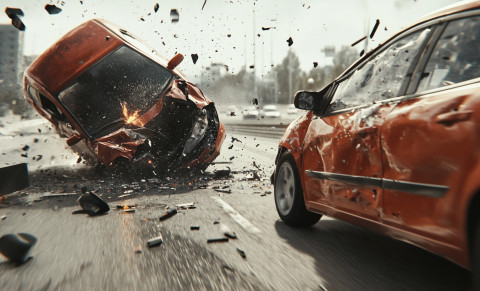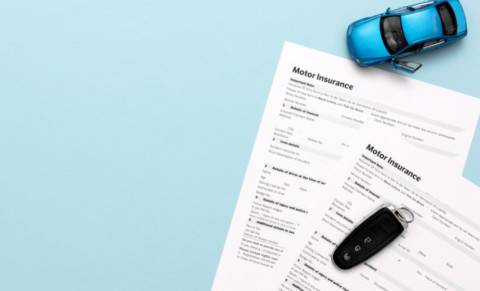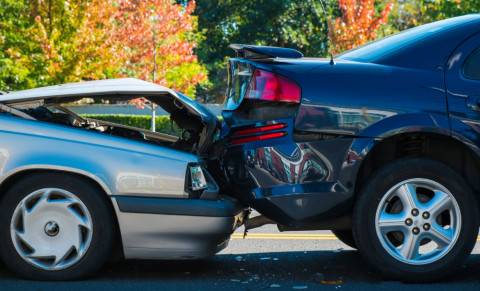What does my auto insurance cover?
By law, the Government of Alberta requires all drivers to purchase basic auto insurance coverage. If you lease or finance your vehicle, your lender may require you to buy optional coverages like collision.
To operate private passenger and commercial vehicles in Alberta, drivers must have auto insurance with a minimum of $200,000 in third-party liability coverage and accident benefits coverage. Most Alberta drivers purchase $1 million in coverage.
Basic Auto Insurance Coverage
Auto insurance is mandatory in Alberta. The required basic insurance coverages are:

Accident Benefits
Accident benefits cover occupants of a vehicle in the event of injury. These benefits include medical and rehabilitation costs, funeral expenses, death benefits, and income replacement.
These benefits are also known as “no-fault benefits,” which means your insurance company pays them to you, regardless of who caused the collision.

Direct Compensation for Property Damage
Direct Compensation for Property Damage (DCPD) covers your vehicle damage, damage to contents, and loss of use in the event you are not at fault for an accident or a portion of the repairs based on the percentage you were not at fault for an accident. DCPD covers any damage to your vehicle and its contents at actual cash value.
It is called direct compensation because even though someone else caused the damage, it is you who collects directly from your insurance company.

Third-Party Liability
If you are in some way responsible for an accident causing injury or damage to a third party, your third-party liability coverage pays for a legal claim against you.
Third-party liability covers a person’s physical injury or non-vehicle property damage, such as a fence.
Additional Auto Insurance Coverage
Insurance companies also offer optional or additional insurance coverages to protect your vehicle. These are:
Collision
If your vehicle is damaged by colliding with another vehicle, an object, or the ground, collision coverage pays for your vehicle’s repair.
There is usually a deductible amount for this coverage. The deductible is either paid by the policyholder toward the cost of repairs or deducted from the claims settlement.
Comprehensive
Comprehensive coverage is for damage resulting from an event other than a collision, such as hail, vandalism, theft, or fire.
There is usually a deductible amount for this coverage. The deductible is either paid by the policyholder toward the cost of repairs or deducted from the claims settlement.
All Perils
All Perils coverage combines collision and comprehensive coverages for your vehicle under one deductible. It also includes coverage for loss or damage to your vehicle if someone in your household steals it.
Specified Perils
Specified Perils coverage is a more limited version of comprehensive coverage. It covers damage from specific events such as fire, lightning, theft, etc.
There is usually a deductible amount for this coverage. The deductible is either paid by the policyholder toward the cost of repairs or deducted from the claims settlement.
Endorsements
An endorsement is an attachment, which increases or reduces coverage to a standard auto insurance policy. Some common endorsements include:
- Comprehensive Cover Limited Glass (known as a SEF 13D) – This limits the coverage on a vehicle’s glass for a reduced premium.
- Loss of Use (known as a SEF 20) – If your vehicle is damaged and your insurance policy covers repairs, this attachment provides you with a specified daily dollar amount and a total amount towards either a vehicle rental or the use of taxicabs and public transportation.
- Legal Liability for Damage to Non-Owned Automobiles (known as a SEF 27) – Extends the physical damage coverage and deductible you have on your vehicle to a rental vehicle.
- Accident Rating Waiver (known as a SEF 39) – This protects the renewal of your insurance from increasing due to an at-fault accident involving your insured vehicle.
- Limited Waiver of Depreciation (known as a SEF 43R) – This waives any depreciation on repair or replacement of a new vehicle should it suffer an insured loss (subject to certain restrictions).
- Family Protection (known as a SEF 44) – Protects you and family members in your vehicle if you are in a collision with an uninsured or underinsured driver. Even though you may have the right to collect money from an at-fault driver to reimburse you for your claim, if the driver does not carry enough insurance or has no insurance, your claim may not be fully paid. This endorsement pays the difference between your claim settlement amount for injuries arising from the accident and the third-party liability limit of the at-fault driver’s policy up to your third-party liability limit.